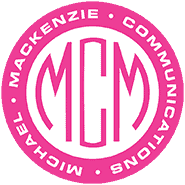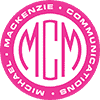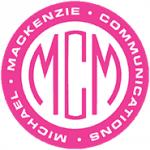Have you ever wondered how a company lands at the top of the page when you search the internet? There are three predominant reasons: big companies with name recognition and a solid standing in the industry (think Coke or Home Depot); paid ads; and keyword optimization. This blog is going to focus on keywords.
How Keywords Impact SEO
Search Engine Optimization (SEO) is the process of improving websites and internet listings by enhancing your content with specific information that people are trying to find. The goal is for your company information (usually your website) to appear on the first page of search results for a specific search term. Search results are driven by the frequency that the term is found in your content; the more times your content displays that term, the more search engines consider you an expert on that topic and the higher you move up the results ladder.
The obvious next key question is, “What keywords do I need to focus on?”
How to Choose Keywords
The most important part of your SEO strategy is identifying the best keywords to include in your content. While thousands of words may pertain to your company and industry, the best recommendation is to choose a minimum of 50 words to work with. ‘Keywords’ is a broad term for the individual words, several word phrases and questions that might be asked to search for a specific company or product.
What words are appropriate?
Your keywords need to be a mix of general industry words, words specific to your company and words that your competitors are using. Let’s break each type down.
- General Industry Words: These words identify your business. For instance, if your company manufacturers paper, keywords might include:
- Paper manufacturer
- Paper mill
- Pulp
- What company uses the most recycled product in their paper
These words will have high search volume and return thousands, even millions, of results. However, you need some of these words to provide legitimacy and context to your content.
- Company-Specific Words: These words help you narrow down results and emphasize your company’s niche. In our paper manufacturing example, specific words may include:
- 100% natural paper fibers
- Classroom paper
- The name of your company
- Paper manufacturing in [your location]
- What company uses bamboo to make their paper
- Competitor Words: These words are performing well for your competitors, so you want to use these words because they are successful – and to try and take a piece of their audience. Examples may include:
- Paper manufacturing process
- Shipping paper to the southeast
- Corporate paper sales
- What are the benefits of using synthetic materials to make paper
To find these words, you can use an SEO tool like Ahrefs, SEMrush or, for a more basic analysis, Google Trends.
What words are realistic?
When narrowing down your keywords to the top 50, it’s important to consider how likely it is for you to reach the top search results for a keyword. For instance, if a search term has a large search volume – at least 5000 or more hits per month – it may be hard for a smaller company to make traction against that word. A regional paper manufacturer will probably not rank for ‘paper company’ or ‘Xerox.’ These words shouldn’t be avoided, as mentioned before a few need included, but your strategy should not hinge on their use. More targeted words will allow you to build an audience through consistent use. Striving to place in the top 10 of search results for words with a search volume around 1000 hits per month is a worthy goal.
How to Implement Your Chosen Keywords
Once you’ve identified your keywords, the next step is knowing how best to use these keywords in your overall marketing plan (search engine marketing). This includes updating web copy, using consistent words in social media posts, exploring targeted ads based on keywords and making sure your internet presence is updated often. Look for this blog soon!
This blog is courtesy of MMC Account Manager Melissa Holder.



